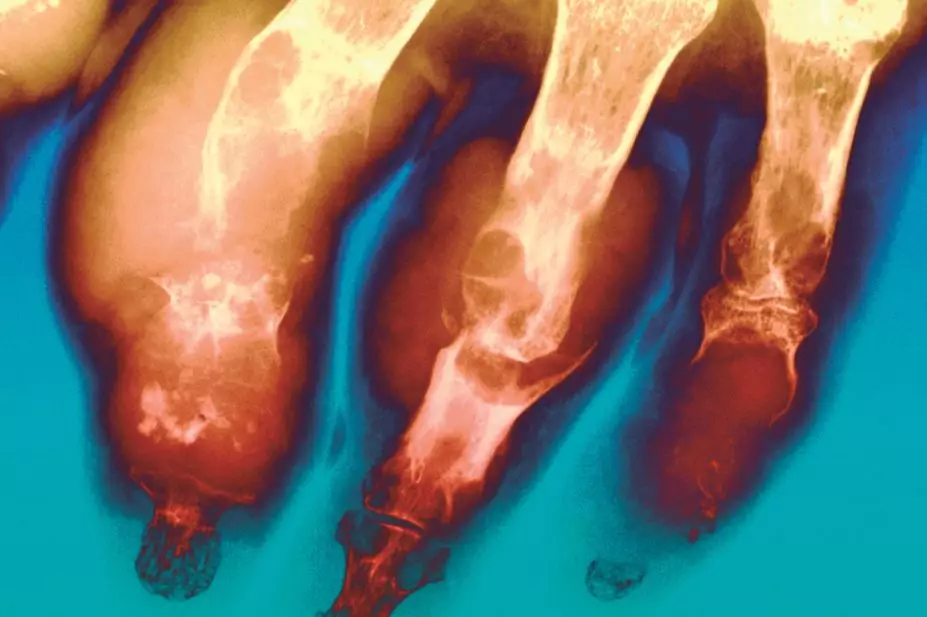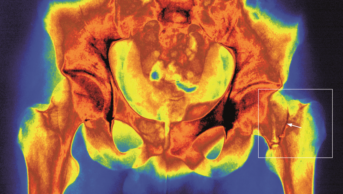
Jean-Denis Laredo, ISM / Science Photo Library
Gout and chronic kidney disease (CKD) commonly occur together but clinicians can be cautious about using urate-lowering therapy in such patients for fear it may worsen renal function.
Using UK general practice data, researchers compared 13,685 newly diagnosed gout patients who began taking allopurinol between 2000 and 2014 with an equal number of matched controls who had no allopurinol exposure.
The authors, who reported their results at the ACR/ARHP annual meeting in Washington on 14 November 2016[1]
, found that 1,384 and 1,372 patients in each group, respectively, developed CKD stage 3 or above during a mean follow-up of four years. Analysis showed no increased risk in the allopurinol group after adjusting for confounding factors.
The researchers say their findings should help reassure clinicians that serum urate levels can be lowered in gout using allopurinol without an increased risk to the kidneys.
References
[1] Vargas-Santos AB, Peloquin C, Zhang Y et al. No increased risk of chronic kidney disease with allopurinol use [abstract]. Arthritis Rheumatol 2016;68. ACR/ARHP annual meeting, 14 November 2016, Washington.


